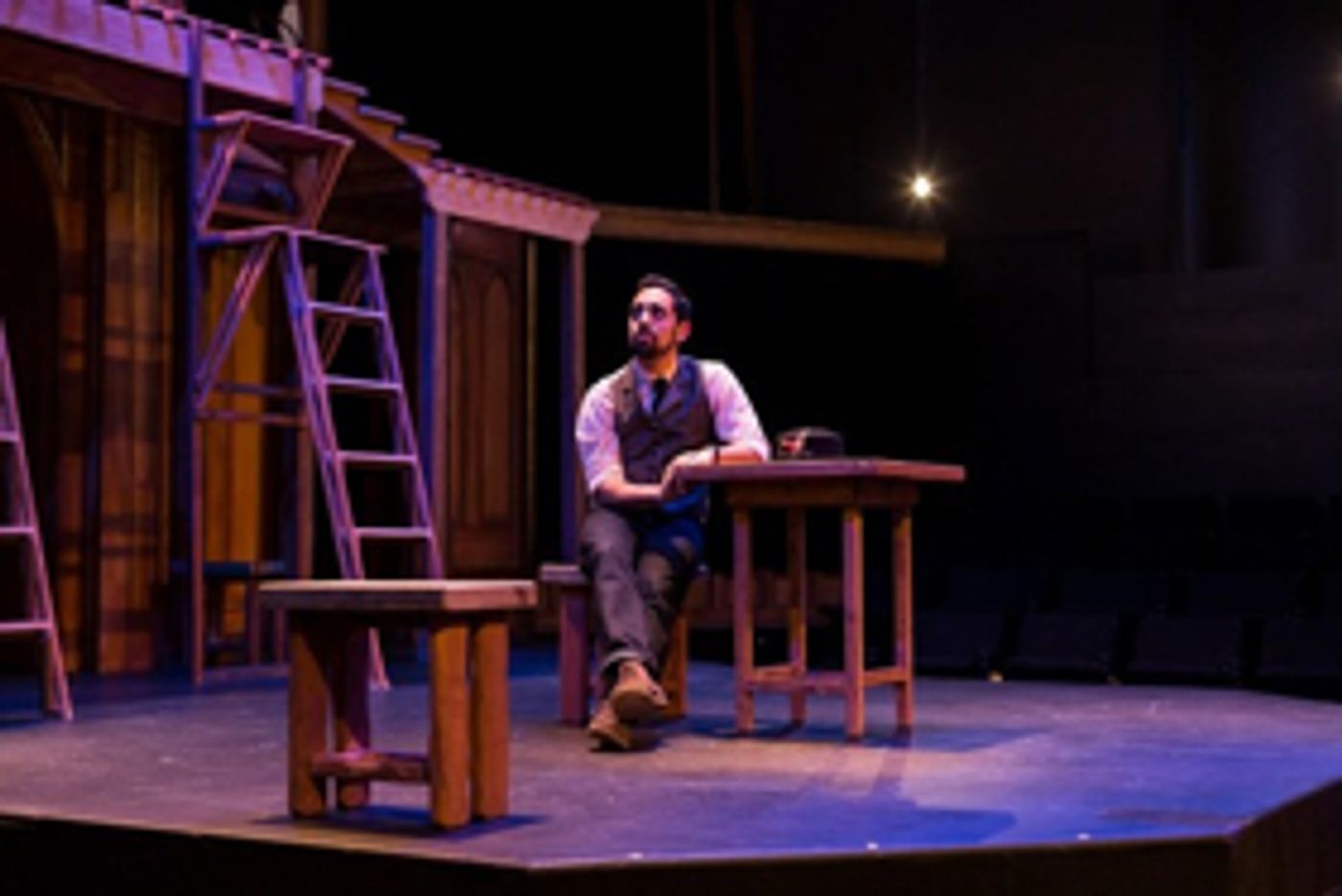Review: OUR TOWN Is a Lot Like Us, At Gamut

It's become common now for even casual fans of television shows to talk about "meta" - the self-referential parts of a series, the moments in which the show, or its creators (also known as TPTB, "the powers that be") display their awareness of the show's running themes or of its viewers. It's making the rounds now in fashionable television critic chat. But theatre? Theatre had meta before meta was cool, and there's no better example than Thornton Wilder's OUR TOWN, the play that knows it's a play. Winner of the 1938 Pulitzer for drama, a not-always-awarded category, and a later Tony for Best Revival, it's one of the best examinations of life that's done on stage, and it's done no service by being relegated as often as it is to a high school production. To be fully metatheatrical, the cast needs its own self-awareness and life experience that high school students often can't bring to the table.
At Gamut Theatre in Harrisburg, there's no such problem. The cast, neatly assembled by director Thomas Weaver, is not only aware, but literally looking down from heaven on the proceedings - those not on stage at the time occupy the upper level of the stage, watching the proceedings and the audience, and providing sound effects for the action below, in sight of an audience that knows that's what the actors are doing. But the actors would be nothing without a stage manager - and Stage Manager is the star of the play, the puppeteer of the show who moves the props, calls the characters to their places, sets the scenes, and completely obliterates the "fourth wall" between audience and stage. Here, David Ramon Zayas is the Stage Manager, a part he pulls off with a certain amount of puckish good humor as well as Wilder's own wit; properly done, OUR TOWN is a very funny show, even when the audience isn't sure it should be allowed to react to what's happening.
In the first act, "Daily Life," the characters are introduced and go about their daily routines: Doc Gibbs (Clark Nicholson) delivers babies and talks to the newsboy (Russ Carmichael); Mrs. Gibbs (Lisa Leone Dickerson) and neighbor Mrs. Webb (Kelli Kauterman) discuss their husbands and families while gardening. Howie Newsome (Tara Herweg) delivers the milk, and the kids, Emily Webb (Gabriella DiCarli) and George Gibbs (Zane Garcia) go to school and flirt. The Stage Manager gives a general map of the town of Grover's Corners, and Professor Willard (Joseph Lavender) explains more of the history and topology of the region than even the residents care to know. Lavender, who has other small parts in the show, all but owns the first act in his dry, wry academic lecture on everything no one cares to hear about Grover's Corners.
The second act, "Love and Marriage," unfolds predictably, but fascinatingly. It's about the eventual marriage of, no surprise, George and Emily, with all the obstacles one faces when choosing to wed straight out of high school. Will George go to college? Will Emily, or will she be another bright girl lost to scholarship to have a husband and children? What about George's baseball career, at least his local one? And what about those perfectly rational cold feet that George and Emily are developing?
The third act, "Death and Eternity," is where the meat of Wilder's observations lie. People both live and die in Grover's Corners, from the unsympathetic choir director, Simon Stimson (Evelyn Adams) to mothers and children, who observe acidly the lamentations of the living. The recently deceased notice the old stones of the cemetery marking "strong people who'd come a long way to be independent," as the Yankee town is except when grieving. One wonders, coming round to the first act, "Do human beings ever realize life as they live it?"
And that is the crux of the non-metatheatrical portion of the play: humans rush through their daily life without observation of their life itself - or as Allen Saunders said, famously, in the 1950s (then paraphrased by John Lennon a decade later), "Life is what happens while you're making other plans." Nothing the dead of Grover's Corners observe of life is what any of them or their survivors have planned, but it's only the dead who see the time within human life being lost.
Wilder had issues with most productions of OUR TOWN that he saw: it should be performed "without sentimentality or ponderousness--simply, dryly, and sincerely." That's what Weaver's production brings - simple, dry, and wry (perhaps with a twist of lemon) performances, by knowing actors not performing knowingly. It's a show with no space for camp, yet equally no space for ignorance of life. The residents of Grover's Corners are hardy Yankees who have seen it all, from birth to after death, and that's what Weaver's cast brings to the table (and to the heavenly choir, of sorts, above the stage).
Gamut's OUR TOWN is beautiful not only in the simplicity Wilder demanded, down to the stripped-down stage, but in the sparseness of the actors' presentations. Going over the top is simple. Restraint is harder, and restraint is what the book needs. If any show was written to prove that less is more, it is OUR TOWN, and we may thank Thomas Weaver and David Ramon Zayas for indeed giving us, to twist a commercial slogan, "everything we ever wanted in a show and less." This is minimalism at its level best.
At Gamut through February 25. Well worth the effort to see one of America's classic plays done right. Visit gamuttheatre.org for tickets and information.
Reader Reviews
Videos

